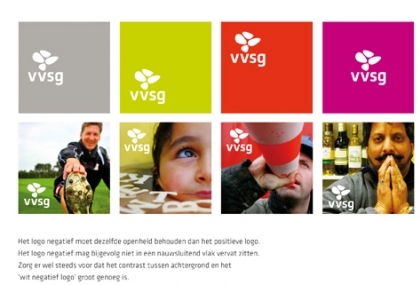
Flemish-Senegalese twinnings combat climate change
VVSG’s new program ‘GLoBe’ – short for good local governance in Dutch – aims to foster coherent local policies for sustainable development in seven countries. The guiding principles of GLoBe are universal human rights and the SDGs: every human being, everywhere, today and tomorrow, has the right to a decent existence. This is only possible with a fair distribution of natural resources, a commitment to the sustainable use of raw materials, and respect for the environment and climate, both in terms of adaptation and mitigation.
In Senegal, GLoBe will continue to contribute to the capacity building of local administrations for the purpose of strengthening qualitative and inclusive service delivery by partnering Senegalese local governments with Flemish local governments. The new GLoBe programme, however, will broaden the focus on natural resource management and climate action with new initiatives regarding waste management and green entrepreneurship, supporting sustainable micro-entreprises. Two local governments, Sokone and Tambacounda, and the intermunicipal cooperation Kemopodi (between the cities of Keur Moussa, Pout and Diender) are directly involved.
The past achievements of the partnership between the Flemish municipality of Zemst and their Senegalese partner Sokone, which started in 2006, were recently celebrated with a visit from the Belgian minister for development cooperation, Mrs. Meryame Kitir. In October, the minister visited several projects that combat climate change and promote a healthier environment, such as the reconstruction of streets and bridges to cope with the ever increasing number of floods, reforestation projects of mangroves to combat erosion and the distribution of cooking stoves on renewable energy to reduce firewood consumption. Kitir also discussed climate change with Senegalese President Macky Sall, resulting in a mutual commitment to continue joining forces to combat climate change.
In the new VVSG programme, the local government of Sokone will support the least sustainable entrepreneurs – for example those involved in economic activities damaging mangroves - with reorienting towards more environmentally sustainable activities. This includes support in terms of training and advice, facilitating access to finance and to public markets, the provision of equipment and the establishment of a business incubator.
Secondly, after several years of successfully reinforcing the local waste management system in Sokone, the new programme envisages its transition towards a more robust and autonomous system. A concerted system of recycling will be set up, with green kiosks in the neighborhoods, a new mechanism for waste collection and the installation of additional waste treatment units at the plant. Through the green kiosks, the municipality wants to improve public awareness about the importance of waste revalorization and of the advantages of a clean and healthy environment. By providing garbage cans and sorting bags and stimulating households to pay fees, the collection system will be strengthened.
Sokone's civil society has been heavily involved in the program, showing strong leadership. Several program activities have been delegated to civil society organizations such as the communal women's federation, the sanitation committees (management of household subscriptions for waste collection) and the economic interest group Jokko (coordination of waste management activities). Continued collaboration with citizens and civil society, between the municipal departments involved, but also with surrounding municipalities remains a key success factor for the future programme.
GLoBe in Senegal thus will continue focusing on good local governance, but broading its scope towards local economy and waste management, with special attention to environmentally friendly solutions such as the reduction, recycling and valorisation of waste, the development of a green local economy through organic farming, composting and the promotion of environmental standards and labels. Getting women, youth, farmers and small entrepreneurs on board is key to strengthen participation of the most vulnerable in local government’s actions. By strengthening local governance on economic development and waste, GLoBe in Senegal will advance healthier and cleaner living environments and boost decent, viable and sustainable employment for local stakeholders.
